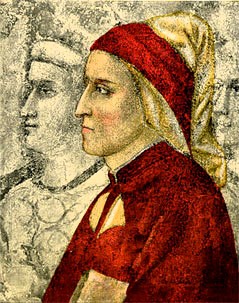
Perhaps heaven is littered with the disembodied, collective consciousness of Woolworth, Circuit City, Borders and Blockbuster. Similarly, it may be possible that Enron and Lehman Brothers, a little less fortunate due to the indiscretions of their leaders, have found their corporate souls to be forever tormented in business hell. And, what of the high tech start-ups that come and go in the beat of a hummingbird’s wing? Where are Webvan, Flooz, Gowalla, Beenz, Loopt, Kosmo, eToys and Pets.com? Are they spinning endlessly somewhere between the gluttons (third circle) and the heretics (sixth circle) in Dante’s concentric hell. And where are the venture capitalists and where will Burger King and Apple find themselves when they eventually pass to the other side?
This may all seem rather absurd. It is. Yet, the evangelical corporate crusaders such as Hobby Lobby and Chick Fil A would have us treat their corporations just as we do mere (im)mortals. Where is all this nonsense heading? Well, the Supreme Court of the United States, of course.
[div class=attrib]From the New York Times:[end-div]
David Green, who built a family picture-framing business into a 42-state chain of arts and crafts stores, prides himself on being the model of a conscientious Christian capitalist. His 525 Hobby Lobby stores forsake Sunday profits to give employees their biblical day of rest. The company donates to Christian counseling services and buys holiday ads that promote the faith in all its markets. Hobby Lobby has been known to stick decals over Botticelli’s naked Venus in art books it sells.
And the company’s in-house health insurance does not cover morning-after contraceptives, which Green, like many of his fellow evangelical Christians, regards as chemical abortions.
“We’re Christians,” he says, “and we run our business on Christian principles.”
This has put Hobby Lobby at the leading edge of a legal battle that poses the intriguing question: Can a corporation have a conscience? And if so, is it protected by the First Amendment.
The Affordable Care Act, a k a Obamacare, requires that companies with more than 50 full-time employees offer health insurance, including coverage for birth control. Churches and other purely religious organizations are exempt. The Obama administration, in an unrequited search for compromise, has also proposed to excuse nonprofit organizations such as hospitals and universities if they are affiliated with religions that preach the evil of contraception. You might ask why a clerk at Notre Dame or an orderly at a Catholic hospital should be denied the same birth control coverage provided to employees of secular institutions. You might ask why institutions that insist they are like everyone else when it comes to applying for federal grants get away with being special when it comes to federal health law. Good questions. You will find the unsatisfying answers in the Obama handbook of political expediency.
But these concessions are not enough to satisfy the religious lobbies. Evangelicals and Catholics, cheered on by anti-abortion groups and conservative Obamacare-haters, now want the First Amendment freedom of religion to be stretched to cover an array of for-profit commercial ventures, Hobby Lobby being the largest litigant. They are suing to be exempted on the grounds that corporations sometimes embody the faith of the individuals who own them.
“The legal case” for the religious freedom of corporations “does not start with, ‘Does the corporation pray?’ or ‘Does the corporation go to heaven?’ ” said Kyle Duncan, general counsel of the Becket Fund for Religious Liberty, which is representing Hobby Lobby. “It starts with the owner.” For owners who have woven religious practice into their operations, he told me, “an exercise of religion in the context of a business” is still an exercise of religion, and thus constitutionally protected.
The issue is almost certain to end up in the Supreme Court, where the betting is made a little more interesting by a couple of factors: six of the nine justices are Catholic, and this court has already ruled, in the Citizens United case, that corporations are protected by the First Amendment, at least when it comes to freedom of speech. Also, we know that at least four members of the court don’t think much of Obamacare.
In lower courts, advocates of the corporate religious exemption have won a few and lost a few. (Hobby Lobby has lost so far, and could eventually face fines of more than $1 million a day for defying the law. The company’s case is now before the Court of Appeals for the 10th Circuit.)
You can feel some sympathy for David Green’s moral dilemma, and even admire him for practicing what he preaches, without buying the idea that la corporation, c’est moi. Despite the Supreme Court’s expansive view of the First Amendment, Hobby Lobby has a high bar to get over — as it should.
[div class=attrib]Read the entire article following the jump.[end-div]
[div class=attrib]Image: Gluttony: The circle itself is a living abomination, a hellish digestive system revealing horrific faces with mouths ready to devour the gluttons over and over for eternity. Picture: Mihai Marius Mihu / Rex Features / Telegraph. To see more of the nine circles of hell from Dante’s Inferno recreated in Lego by artist Mihai Mihu jump here.[end-div]

 Dante Alighieri is held in high regard in Italy, where he is often referred to as il Poeta, the poet. He is best known for the monumental poem La Commedia, later renamed La Divina Commedia – The Divine Comedy. Scholars consider it to be the greatest work of literature in the Italian language. Many also consider Dante to be symbolic father of the Italian language.
Dante Alighieri is held in high regard in Italy, where he is often referred to as il Poeta, the poet. He is best known for the monumental poem La Commedia, later renamed La Divina Commedia – The Divine Comedy. Scholars consider it to be the greatest work of literature in the Italian language. Many also consider Dante to be symbolic father of the Italian language.